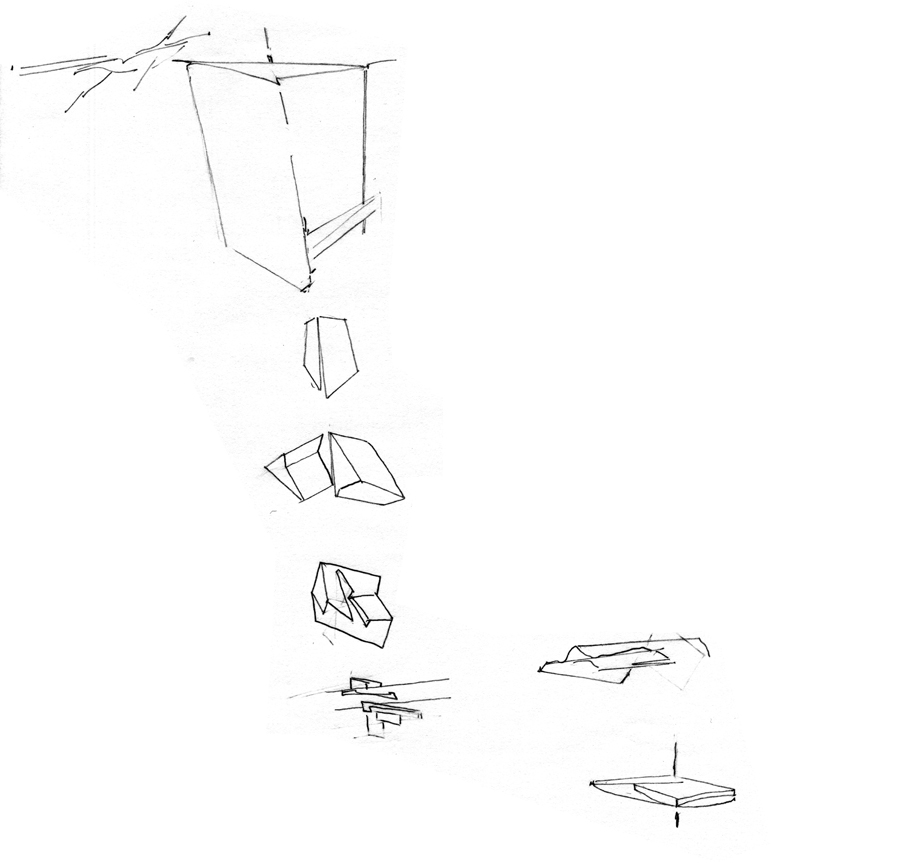questions. what are, where.

Doodles from notes taken during the Smart Clothes conference, Radcliffe Institute, 15 November 2013. Seventeen pages in all, here from p12 during Babak Parviz his “Google Glass” presentation.
*
Parviz posited this big-picture, long-term objective for a project of which Google Glass is only a part: to create conditions for a question, whose answer comes back so fast that you think you know. That is, the answer comes with no “float” or search time or, perhaps, before you’ve even quite formulated your question, or even knew you were asking it.
And so, what is a question? Is there even a question, if the answer precedes its formulation? Would it subside into that mental ocean from which only small portions glint — language-like — on the surface?
Or do technologies/tools just move what — the kinds of things — one asks formal questions about, to a different location? Has the nature of questions changed over time? From where? when? what? to how? to why? to questions of increasing granularity, with which to satisfy school writing assignments?
My first reaction was unease: I tend to distrust my first answers to my own questions. But is even that formulated right? Better, maybe: I distrust my first impressions, my first theorizing, assuming it’s part of the scaffolding of a thought that might fall away, and will never quite conclude.
—
postscript (4 July 2019)
or even, whose questions, to begin with. Is there an “I,” that formulates a question, seeks or waits for an answer, or at least the stilling of the question? Indirectly, relates to one aspect of more recent writing of Rachel Cusk, her lack of interest in maintaining characters as such —
(Alexandra) Schwartz: What about the subtleties of character or the subtleties of self-expression, or different personal experience?
Cusk: I think those are shared. I’m not saying they don’t exist. I’m seeing them as more oceanic and as things that you can enter and leave in certain phases of your life that aren’t completely determined by the fact that you’re Jane and this is your life. I’m trying to see experience in a more lateral sense rather than as in this form of character. Which, as I said, I don’t actually think is how living is being done anymore. And it’s one of those ideas that hangs around in novel writing that I don’t really believe anymore.
ex
Violating the Form : Rachel Cusk and Alexandra Schwartz In Conversation (September 2018)
tags:
character; falling away; falling form; Google Glass; knowledge; oceanic; scribble; smart clothes
Rachel Cusk